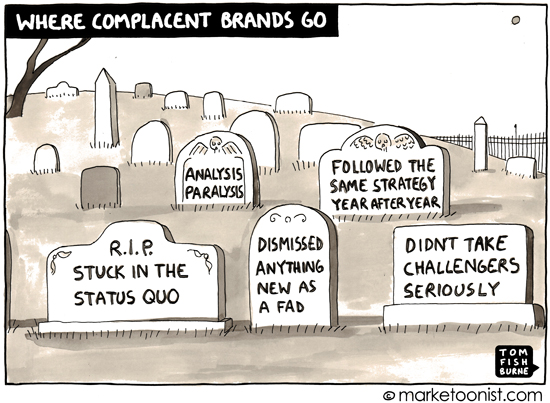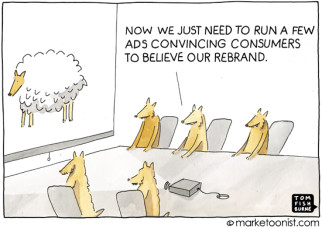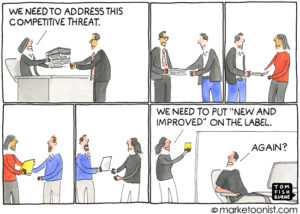“There are only two ways to make money in business: One is to bundle; the other is to unbundle,” Jim Barksdale said 20 years ago at Netscape. I was struck by a recent HBR interview with Jim and fellow Netscape alum Mark Andreessen about the role of bundling and unbundling in business.
Cable TV providers of course get the most attention for product bundles that rankle consumers — forcing everyone to subscribe to the same long tail of TV channels, when all a particular subscriber might want is a handful of channels.
The Cable TV incumbents have long resisted any changes to the status quo, but, increasingly, consumers are finding ways to “cut the cord” through unbundled season downloads from services like iTunes, creatively re-bundled services like Netflix and Hulu, or non-TV entertainment like YouTube. Verizon responded to the cord cutters with an announcement this week that they will offer an a la carte TV service by mid-2015.
This friction between bundling and unbundling underlies many industries from media to software. The evolution in the music industry from 45s (unbundled) to LPs and CDs (bundled) to single-song downloads (unbundled) to streaming services like Pandora and Spotify (bundled) is an example the constant change under many industries.
At the center of any of these shifts is what is better for consumers at the time. Incumbents often stubbornly resist the shift, focusing aggressively on trying to keep things as they are, rather than offering a better solution. You can only sit on the other side of what consumers want for so long. This dynamic create a lot of opportunity for new businesses, and the classic breeding environment for challenger brands.
As Jim Barksdale says in the HBR interview, “Of course, you always are bundling and unbundling. You can’t stand still.”
Here’s a cartoon I drew last year on “standing still”. I’d love to hear your thoughts on bundling and unbundling.
(Marketoonist Monday: I’m giving away a signed cartoon print. Just share an insightful comment to this week’s post by 5:00 PST on Monday. Thanks!)




John Dodds says
I agree completely, but this runs deep in the entertainment business where producers have historically sold the ancillary rights of unsuccessful movies/series bundled up with those of the hits so as to inflate the income of the former.
Oun Tanwa says
Bundling is worse in Canada where I live where you have only a handful of companies controlling telecoms, cable TV AND Internet…
Not only do they force you to buy TV channels you don’t want to watch, you’re coerced into buying other services from them as well because the cost is astronomical if you’re only buying one service…
The incentive to change is even smaller for companies in these oligopolistic industries.
I am hoping for the day when we have disruptors that can up-end this customer-unfirendly setup
DSprogis says
“Act now and get the potato peeler!”
Excessive consumption is such a disgrace. Our poor planet is taking it on the chin for all our excesses – bundling, up-selling, what ever you want to call it. It also makes cost comparison more difficult for the core item you want.
Jackie B says
The dilemma is – I don’t always know what is best. Travelers on planes thought that just “buying a plane seat” was the answer. But they didn’t really understand (nor probably the airline, either) what the actual cost of a bundled seat was vs. and unbundled seat. It is not as people can answer completely. However your current cartoon drives home the idea that there might be better bundles…..like do I really want to pay the added fee for the sports programs – since I really don’t even want one!!!? Thanks again for insight and contemplation, Tom.
Meshack says
I wanted to add that cable bundling isn’t always a bad thing. It might allow for channels to exist that put out good content that might not be commercially viable on their own. If I were a cable subscriber I would want sports to be unbundled however.
Stephen Macklin says
It was a smart move by Verizon to announce an a la carte TV service. My first thought when I heard that news was how to manage the process of unwinding from my current cable company since I also use them for internet access and phone service.
My second thought was that this would be such a hassle it might be better to work on convincing my current provider to change.
Michaela Mora says
Luckily, market research can help to answer question whether to bundle or not. I wish more companies would be aware of that. Most of the time, customers are not really against bundling, they just want a bundle that is relevant to their needs. When this option is not offered, the natural reaction is to think they want everything un-bundled, but they tend to underestimate the effort required during the purchase decision making if too many options are available, which can result in not buying at all. Tom, thank you for inspiring this blog post on the subject: http://www.relevantinsights.com/product-bundling-to-do-or-not-to-do